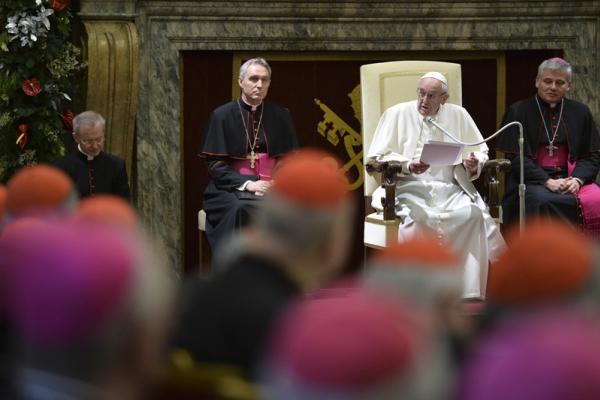Dec 23, 2015
A year after he delivered a blistering diagnosis of 15 “diseases” plaguing the Roman Curia, including “spiritual Alzheimer’s,” Pope Francis on Dec. 21 listed a 12-point “catalog of needed virtues” that the bishops and cardinals who run the Holy See should seek to follow.
Read the Full Article

Already a subscriber? Login
